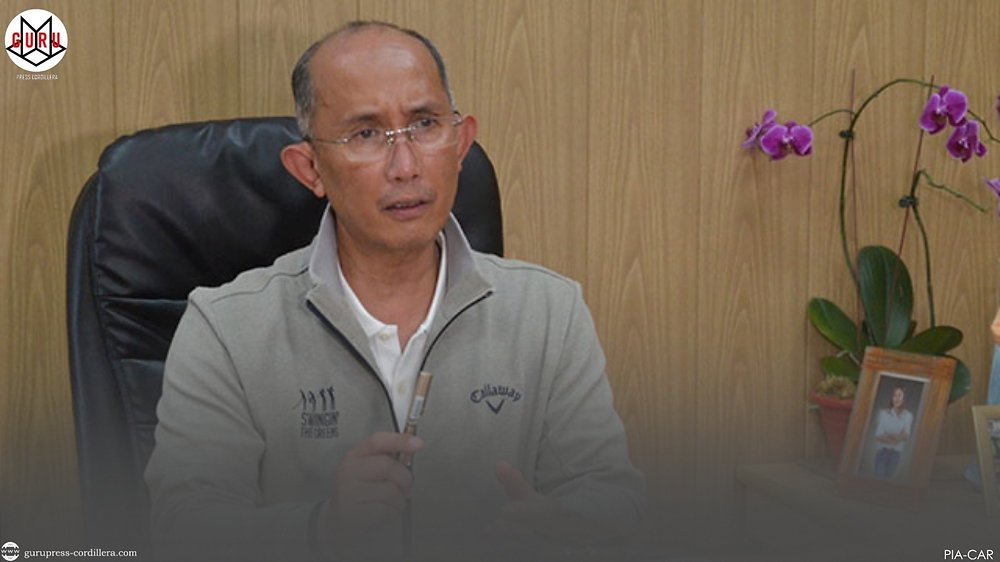Now that the film industry is still in the dumps post-COVID, everyone is looking to Film Development Council of the Philippines (FDCP) Chairman Jose Javier Reyes for solutions, and as the institutional pillar of the industry, he has plenty of suggestions. In this very candid and frank interview a few days before he flew to this year’s Cannes Film Festival, Direk Joey discusses why Filipinos hate their own movies, why fixing this problem is a two-way street between audiences and producers, and that there is more to Filipino cinema abroad than Lav Diaz and Brillante Mendoza.
There’s an audience perception when it comes to Filipino films: They always say it’s just drama or rom-com, or horror. How will the FDCP address this?
It takes time. I’m not saying that within my term that I would be able to change the tide altogether because that took years to have that attitude. Filipinos think Filipino films are trash. They think that we deal with the same tropes over and over again. Which is true. They feel that it’s inferior in quality. Which is true. They feel that it does not offer anything new and challenging. Which is true. Producers have to address that. FDCP, although it is within its mandate to produce films, I choose not to. I’d rather help the producer produce films than have us [do so].
Do you think this perception is also hinged on accessibility to the films?
Yeah, very much so.
The world has to know that we have more filmmakers than Lav Diaz and Brillante Mendoza.
Jose Javier Reyes

Because we have a lot of good films…
But they’re not accessible. And that’s what we’re trying to do with JuanFlix, our streaming platform. For P99 a month, you can get to watch classic films, from the Lamberto Avellanas all the way down to the Dwein Baltazars. We’re trying to create as many opportunities for not only local but also foreign films, which we believe are important to make accessible so the Filipino audience will appreciate it.
I’ll give an example. Jun Lana came up with a wonderful film, About Us But Not About Us. How many people watched that? Not a lot. And yet they say, all the films are trash. See that? That’s not trash. But you didn’t choose to watch it. Why? Because it was not a romantic story like Hello, Love, Again, [which] as you say is bugbog na sa Filipino movies. So, how do we solve your problem?
Another thing that really concerns me is not watching in cinemas. It should have been a foreshadowing when they invented the Walkman, in which music refrained from being shared, but music became selfish, a personal experience. Now it’s happened to movies. We watch movies on our smartphones. It’s more practical, accessible, and comfortable. But we’ve lost the sense of community. I hate watching a horror movie alone.
It’s always good to watch it in the cinema.
Yeah! And I think the cinema experience is to bring a community and to share an experience. So we’ve lost that. Kasi ang mahal-mahal, yada yada. That’s another thing we’ll work on right after the elections.
So you’re saying this is also a two-way street for both audiences and filmmakers?
Yeah. Gagawin namin, we’re talking to LGUs, we’re going to have open-air screenings. So that you get people together to enjoy the film, or kind of show comedies, kahit film na lang from the past, just to make them realize ang sarap manood nang may kasamang tao, ‘di ba? ‘Yong mga artsy films, sige lagay namin ‘yan sa mga sa mga cinematheque, pero ‘yong mga magaganda na films na ma-si- share ng komunidad, we bring them. Ayaw niyo pumunta sa sine? Puwes, ‘yong sinehan and pupunta sa inyo.
We have to think beyond the Philippines. Kung iisipin mo [lang] si Aling Tasing at si Mang Berto, wala, mamamatay ka.
Jose Javier Reyes
What are some of the problems that you think need to be addressed in terms of the producers’ mindsets?
Ang mga producers natin, napaka-parochial pa rin kung minsan ang pag-iisip. They keep complaining that the box office is down, which it really is. And you realize that if you depend on the Philippine market alone, walang mangyayari. I think what is important is to find ways of expanding your market. And you can expand your market in two ways: One is like what Star Cinema did with Hello Love, Again, in which they had a simultaneous opening in both Manila and the U.S. Imagine, number eight siya sa U.S. box office, which means ganoon karami ang Pilipino sa U.S. So that’s one possibility. But then that got pretty screwed up because of the 100 percent tariff that President Donald Trump is imposing.
Which they rescinded.
Yes, but let’s see where that goes. Another is the Middle East. That’s where the Department of Trade and Industry is helping us. Secretary Christina Roque wants to use the various satellite offices of DTI to link up producers with distributors in the Middle East and Europe, and the likes, so you can have a simultaneous opening, para ‘pag pinalabas mo dito, you get the audience of the diaspora also.

Is this something that you actually discussed with the producers?
Yeah. But you see some of them are so stuck up pa with thinking like [it’s] 2018. I gave a talk the other day at the [Cinema Expo] of the Cinema Exhibitors Association of the Philippines (CEAP). They have this big convention and I was telling them, “You know, we all have to work together with this. This is a worldwide problem. Kasi even in the States, walang kumikita.” Over and above Snow White, ‘di ba?
What is important is for us to work together. We have to think beyond the Philippines. Kung iisipin mo [lang] si Aling Tasing at si Mang Berto, wala, mamamatay ka.
You know, an aside, I was talking to Roselle Monteverde [Teo of Regal Films]. Untold did okay. The other Filipino films really collapsed. Not even the American films are making money. Which is something I told them [at the Cine Expo]. Watching movies is no longer part of our daily lives. We watch YouTube. How are we going to address this problem? We are trying to find solutions at the FDCP, but every stakeholder must pitch in.
I really find it senseless to go to these film festivals if we don’t have films to show. It becomes a junket. We’ve trimmed down expenses in festivals, but cutting down extravagant parties. I don’t believe in parties [Laughs]. I really don’t. I give dinners to delegates to honor the Filipinos who are there and invite foreign friends to sit down and actually talk with us, rather than an open bar and getting people drunk… because they don’t remember you! [Laughs]. They remember the drinks, the karaoke. I don’t think the Philippines is in a financial position to be the entertainment capital of festivals. So, I would rather help the producers bring good films to the festival rather than host parties. I find that to be exorbitant. And even to a certain extent, sinful to the taxpayers’ money.
As far as the festivals are concerned, it’s important because the Filipino visibility has to be there. I don’t mean this to be pejorative, but the world has to know that we have more filmmakers than Lav Diaz and Brillante Mendoza. As much as I have great respect and admiration for Brillante and Lav, there are still some others who should be given a chance.
Read the rest of the story in The State of Affairs issue of Rolling Stone Philippines. Order a copy on Sari-Sari Shopping, or read the e-magazine now here.











